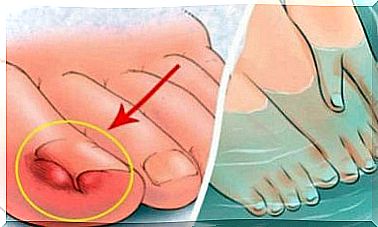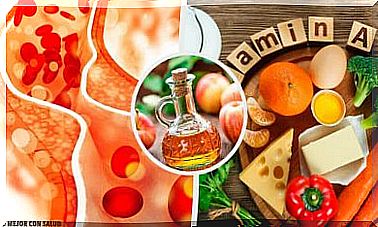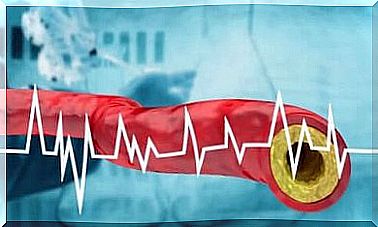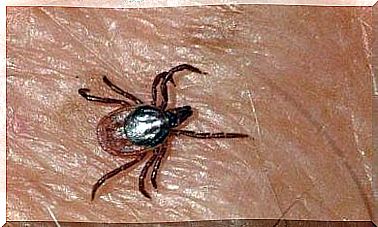Sources Of Protein In A Vegan Diet
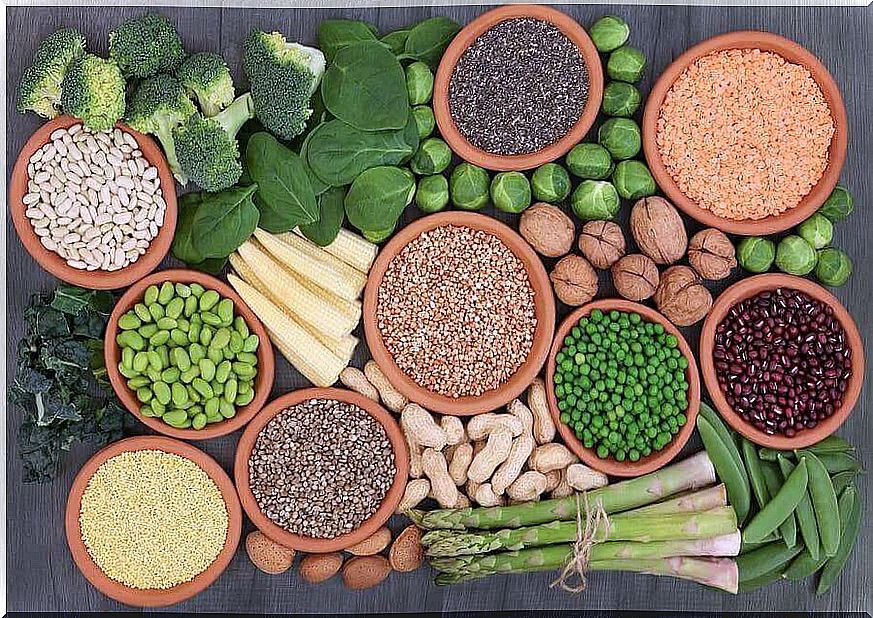
Vegan diets are characterized by the complete elimination of foods of animal origin. Therefore, it is fundamental to find alternative vegetable protein sources. So, do you know what the main sources of protein in a vegan diet are?
First of all, it is important to point out that medical specialists and nutritionists recommend supplementing a vegan diet with vitamin B12.
That’s because this vitamin is only found in animal products. As for the remaining essential proteins and amino acids, we can obtain them by consuming vegetables and grains. Keep reading to learn everything you need to know!
The main sources of protein in a vegan diet
1. Quinoa
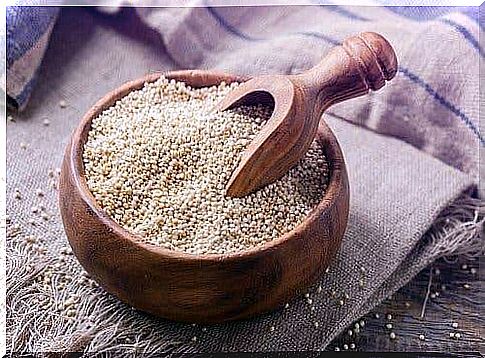
About 15% of quinoa’s composition is protein. In addition, it contains all the essential amino acids that our body needs, including L-arginine. Some of the properties of quinoa that stand out are the fact that it stimulates weight loss, reduces hypertension and improves immunological function.
Quinoa is gluten-free, meaning people with celiac disease and gluten intolerance can eat it on a regular basis. In addition, it is easily digestible, because it does not contain saturated fats. It is also an excellent source of fiber, which means it stimulates bowel function. And finally, it helps the LDL cholesterol level in the blood.
Quinoa is an excellent alternative to rice. This means that we can adapt dishes that normally contain this grain and thus increase the protein value. Plus, we can use quinoa to make veggie burgers and vegan “meatballs,” or we can just add it to yogurt.
2. Soy and soy derivatives are important sources of protein in a vegan diet
Soy is the legume that contains the most protein, as it makes up 35% of the total composition. It also contains amino acids that are essential for the proper functioning of the endocrine system.
At the same time, it provides us with minerals, such as magnesium, which are necessary for muscle formation and carbohydrate metabolism. Finally, soy is also notable for its high content of folic acid and vitamin B1 and vitamin B2.
Its benefits include lowering cholesterol and high blood pressure. It also has the power to improve gut function and flora. And last but not least, we should not forget to mention that soy has a high isoflavone content.
This group of substances is similar to estrogen and has been linked to the relief of the main symptoms of menopause. We can find soy in a number of commercial formats:
- soy milk (usually fortified with calcium)
- tofu
- soya chunks
- yogurt
- vegan cheese
Soy is a very popular meat substitute and there are a wide variety of recipes that use this legume.
3. Oatmeal
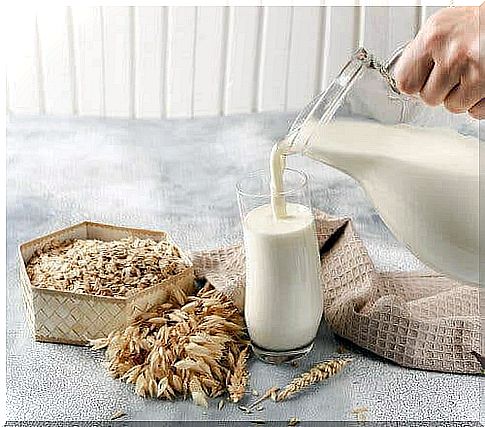
Oatmeal is also one of the main sources of protein in a vegan diet (17%) and is also high in fiber (7%). In addition, it provides a good amount of vitamins (B1, B2, B5, E) and essential minerals, including iron, calcium, magnesium, potassium and phosphorus.
These foods are associated with many health benefits for our bodies, such as the following:
- It helps control cardiovascular disease: the fiber in oats has a profound effect that contributes to a decrease in the absorption of cholesterol. This in turn regulates blood LDL levels and arterial tension.
- It strengthens intestinal function thanks to its high content of soluble and insoluble fiber. Eating oatmeal helps protect the digestive mucosa and enriches the intestinal plates thanks to the prebiotic effect of oats (Spanish link).
- Oats help to sweep away bile salts and exert the cleansing effect of vesicular bile. Therefore, it facilitates the elimination of these salts through the stool, thus preventing the formation of gallstones and colic.
Oats are a very versatile grain. We can consume it in the form of drinks, with yogurt, on salads, etc. We can also use it as a substitute for wheat in, for example, pie crusts for desserts or we can enjoy it with cream cheese.
4. Chia seeds
Chia seeds are particularly rich in protein. In addition, they contain nine essential amino acids. For that reason, they are an indispensable part of any vegan or vegetarian diet. They also contain a lot of omega-3 fatty acids, which contributes to a decrease in the risk of cardiological pathologies.
Furthermore, chia seeds are high in fiber which, as we mentioned, improves bowel function and lowers blood cholesterol levels. We can eat these seeds in the form of chia pudding, for example, but also in smoothies, yogurt and salads.
Basically, pay attention to these foods and make sure to include them as a staple if you’re on a vegan diet. Remember that protein should make up 30% of your total nutrients. So, eating these foods will help you maintain healthy eating habits.
